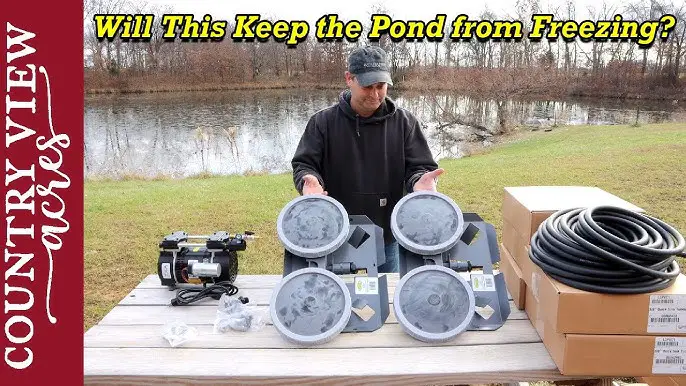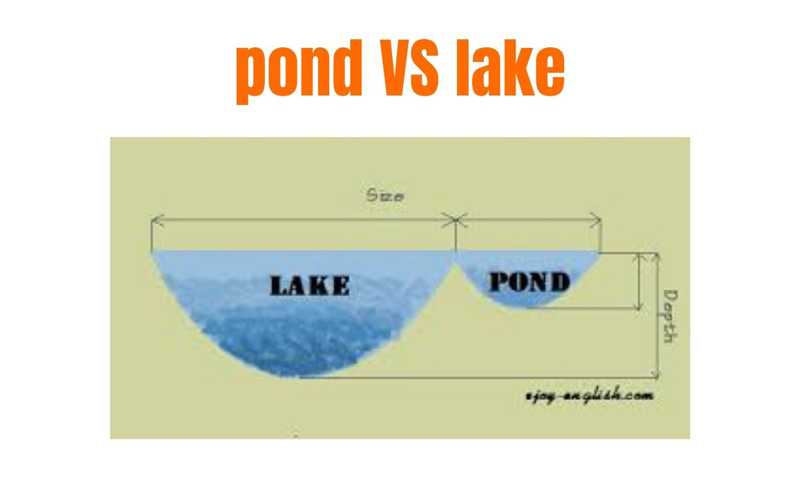Farm ponds are essential for providing water to livestock, irrigation, and other agricultural purposes. However, during the winter months, farm pond owners may face the challenge of keeping their ponds from freezing over completely. A frozen pond can disrupt the ecosystem and prevent access to water for livestock. In this article, we will discuss some effective methods to prevent farm ponds from freezing.
1. Aeration
One of the most effective ways to prevent a farm pond from freezing is by using aeration. Aeration involves adding oxygen to the water, which helps to keep it moving and prevents it from freezing over. There are different types of aeration systems available, such as diffused aeration, surface aerators, and fountain aerators. These systems not only prevent freezing but also help maintain water quality and promote a healthy ecosystem.
2. Deicers
Another popular method to keep a farm pond from freezing is by using deicers. Deicers are devices that float on the water’s surface and generate heat to prevent ice formation. They are easy to install and can be powered by electricity, solar energy, or propane. Deicers are particularly useful for preventing ice formation around water troughs and in areas with extreme cold temperatures.
3. Circulation
Creating circulation in the pond can also help prevent freezing. By installing a water pump or fountain, you can keep the water moving, which slows down the freezing process. Circulation also helps distribute oxygen throughout the pond, which is crucial for the survival of aquatic plants and animals during the winter months.

Credit: www.extension.iastate.edu
4. Insulation
Insulating the pond can be an effective way to prevent freezing. You can use materials like pond liners, straw, or hay to cover the surface of the pond and trap heat. Insulation helps retain the water’s temperature and prevents it from freezing over completely. Be sure to remove the insulation once the weather warms up to avoid any negative impact on the pond’s ecosystem.
5. Solar Covers
Using solar covers is another method to keep a farm pond from freezing. Solar covers are made of special materials that absorb sunlight and transfer heat to the water. By covering the pond with a solar cover, you can prevent heat loss and maintain a higher water temperature, which helps prevent freezing. Solar covers are easy to install and can be a cost-effective solution for pond owners.
6. Salt or Pond Dye
Adding salt to the pond water can lower its freezing point and prevent ice formation. However, it is essential to use salt in moderation to avoid harming aquatic life. Alternatively, you can use pond dye to absorb sunlight and heat the water. Pond dye also helps prevent algae growth and improves water clarity. Both salt and pond dye are simple solutions to keep a farm pond from freezing.
7. Monitoring
Regularly monitoring the pond’s temperature and ice formation is crucial for preventing freezing. Use a thermometer to check the water temperature, and keep an eye on any ice formation. By staying proactive and addressing any issues early on, you can take the necessary steps to prevent the pond from freezing completely.

Credit: m.youtube.com
8. Emergency Measures
In case the pond does freeze over, it is essential to have emergency measures in place to protect the ecosystem and ensure access to water for livestock. Breaking the ice using a hammer or ice auger can create an opening for oxygen exchange and prevent fish suffocation. However, be cautious when breaking the ice to avoid injuring yourself or damaging the pond liner.
Conclusion
Keeping a farm pond from freezing is essential for maintaining water access for livestock and preserving the pond’s ecosystem. By using methods such as aeration, deicers, circulation, insulation, solar covers, salt, pond dye, monitoring, and emergency measures, pond owners can effectively prevent freezing and ensure the pond’s health and functionality throughout the winter months.


